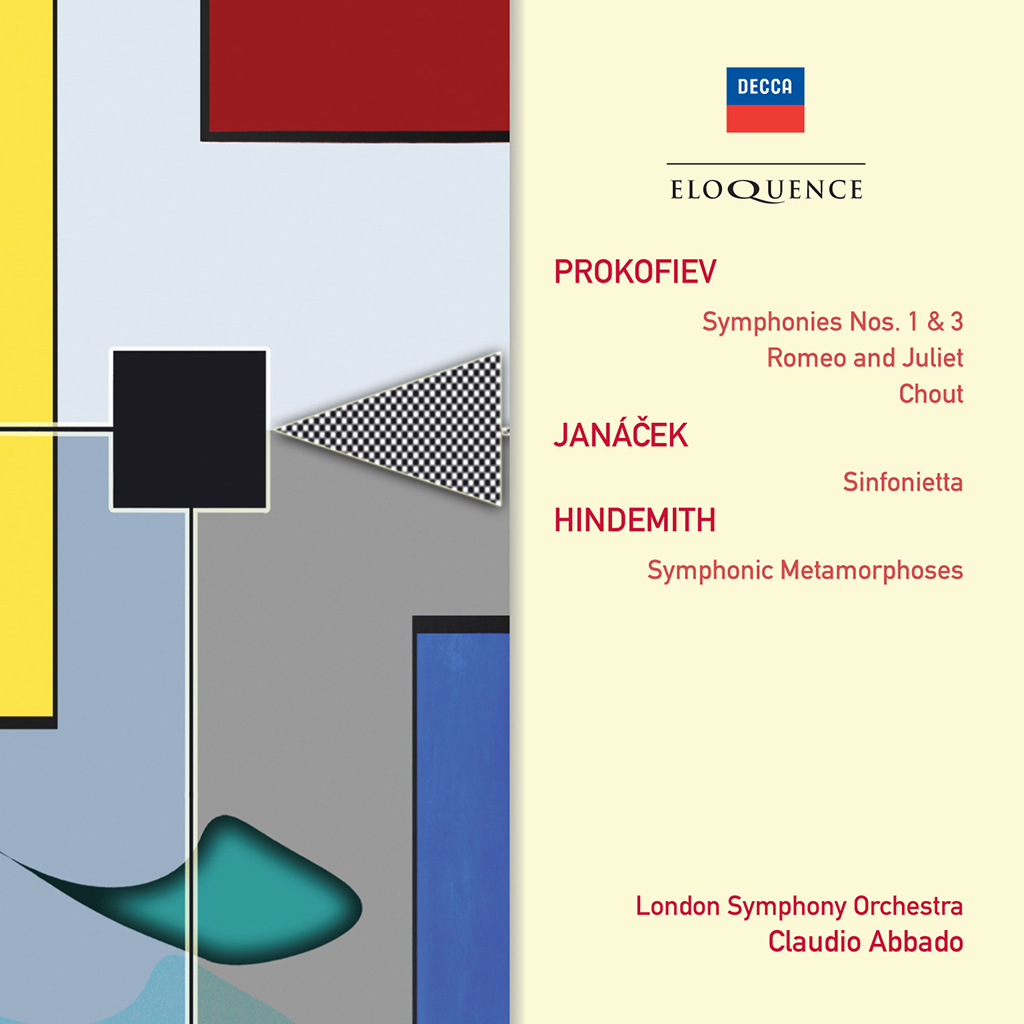Orchestral showpieces such as those grouped here were among the most obvious beneficiaries of the advances in recording technique pioneered by Decca from the late 1950s onwards. Works which may have seemed dauntingly complex to an earlier generation of gramophone collectors could now be captured with startling clarity, due in no small part to the improved acoustic spread and it was at this time that the great twentieth-century classics began to win a larger audience.
When the young Claudio Abbado came to make these recordings in London in the 1960s (he was 32 at the time of his very first Decca session on 11 February 1966 at which the recordings of Prokofiev’s ‘Chout’ and ‘Romeo and Juliet’ were begun), he had already begun to demonstrate his commitment to contemporary Italian music and so it is perhaps not too surprising that he should have been contracted to record these classic works from the twentieth-century orchestral repertoire. This release is also interesting as an early document of Abbado’s relationship with the LSO in 1966, eventually becoming its principal conductor in 1979.
LEOS JANÁČEK
Sinfonietta
PAUL HINDEMITH
Symphonic Metamorphoses on Themes of
Weber
SERGEI PROKOFIEV
Symphony No. 3, Op. 44
Symphony No. 1 in D major, Op. 25 ‘Classical’
Romeo and Juliet, Op. 64 (excerpts)
Chout (The Buffoon): ballet suite, Op. 21b (excerpts)
London Symphony Orchestra
Claudio Abbado
Recording Producers: Ray Minshull (Romeo and Juliet, Chout); David Harvey (Hindemith, Janáček); James Mallinson (Prokofiev: Symphonies Nos. 1 & 3)
Balance Engineers: Kenneth Wilkinson (Prokofiev: Symphonies Nos. 1 & 3, Romeo and Juliet, Chout); Gordon Parry (Hindemith, Janáček)
Recording Locations: Kingsway Hall, London, UK, February & October 1966 (Romeo and Juliet, Chout), February 1968 (Hindemith, Janáček); London Opera Centre, Stepney, UK, October 1969 (Prokofiev: Symphonies Nos. 1 & 3)

